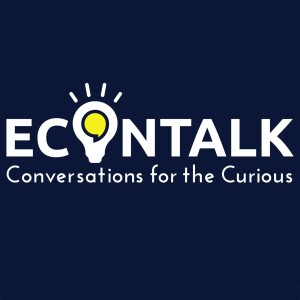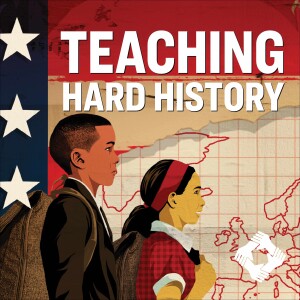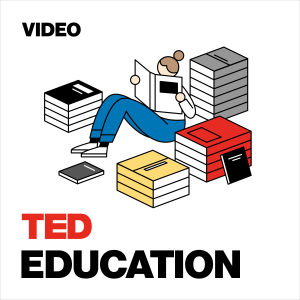

K-12 Greatest Hits: Your shortcut to what works in education
https://www.bamradionetwork.com/feeds/K12radio.xmlEpisode List

Educators Respond to Google’s New AI Push Into Classrooms: Why Some Are Thrilled, While Others See A Troubling Trend
In this conversation, a wide range of voices respond to Google's recent announcement offering over 30 AI tools for free to schools. The creators of TPACK, SAMR, and SETI offer their take on the features of Gemini for education, and look under the hood at the Learn LM engine behind it. The discussion covers the implications of free services, the mixed reactions from the education community, and the potential impact on the future of learning. Finally, the hosts put the new release in historical context, clarifying what educators can and cannot expect from them. This special report concludes by emphasizing the need for thoughtful consideration of how these new tools are integrated into teaching and learning.

The Seven Seismic Executive Orders Aimed at Reshaping Education Policy and Practice Overnight
The episode of “Ed Quake 2025” unpacks a seismic moment in education history: The day seven executive orders about education came crashing down in a single, breathtaking wave from Washington. Signed on April 23, 2025, this sweeping action from the White House wasn’t just a policy update — it marked one of the boldest, fastest shifts in federal education policy ever attempted. The reaction? Electric and divided. Educators, researchers, and advocates are scrambling to make sense of what this means students, teachers and the future of American education.

Some Think More With Gen AI, Some Less: Here's What's Behind This Emerging Critical Thinking Divide
This conversation explores new findings on the critical thinking divide fueled by Gen AI, What does this mean for teaching and learning? This deeply informed group discusses their experiences with Gen AI in the classroom, the pivotal role of foundational knowledge, and the need for a deeper understanding among students and educators alike. The conversation explores how AI in education is shifting the balance between control and creativity, driving some to new cognitive heights and others to new lows. Follow on Twitter: @CFKurban @sparvell @hcrompton @lkolb @punyamishra @jonHarper70bd @MicrosoftEDU @bamradionetwork Related Resources: The Impact of Generative AI on Critical Thinking | The AI Critical Thinking Divide | SAMR | The SETI Framework | TPACK | Triple-E | The GenAI-U Framework | AI Cafe BRN-X: Gen AI Podcast Lab Dr. Punya Mishra (punyamishra.com) is the Associate Dean of Scholarship and Innovation at the Mary Lou Fulton Teachers College at Arizona State University. He has an undergraduate degree in Electrical Engineering, two Master’s degrees in Visual Communication and Mass Communications, and a Ph.D. in Educational psychology. He co-developed the TPACK framework, described as “the most significant advancement in technology integration in the past 25 years.” Dr. Caroline Fell Kurban is the advisor to the Rector at MEF University. She was the founding Director of the Center of Research and Best Practices for Learning and Teaching (CELT) at MEF University and teaches in the Faculty of Education. She holds a BSc in Geology, an MSc in TESOL, an MA in Technology and Learning Design, and a PhD in Applied Linguistics. Fell Kurban is currently the head of the Global Terminology Project and the creator of the GenAI-U technology integration framework. Dr. Liz Kolb is a clinical professor at the University of Michigan and the author of several books, including Cell Phones in the Classroom and Help Your Child Learn with Cell Phones and Web 2.0. Kolb has been a featured and keynote speaker at conferences throughout the U.S. and Canada. She created the Triple E Framework for effective teaching with digital technologies and blogs at cellphonesinlearning.com. Dr. Puentedura is the Founder and President of Hippasus, a consulting practice focusing on transformative applications of information technologies to education. He has implemented these approaches for over thirty years at various K-20 institutions and health and arts organizations. He is the creator of the SAMR model for selecting, using, and evaluating technology in education and has guided multiple projects worldwide. Dr. Helen Crompton is the Executive Director of the Research Institute for Digital Innovation in Learning at ODUGlobal and Professor of Instructional Technology at Old Dominion University. Dr. Crompton earned her Ph.D. in educational technology and mathematics education from the University of North Carolina at Chapel ill. Dr. Crompton is recognized for her outstanding contributions and is on Stanford’s esteemed list of the world’s Top 2% of Scientists. She is the creator of the SETI framework. She frequently serves as a consultant for various governments and bilateral and multilateral organizations, such as the United Nations and the World Bank, on driving meaningful change in educational technology.

Two Roadmaps For Making Smarter Decisions About Generative AI in 2025?
The entire context of teaching and learning is changing at a speed and magnitude that no one in education has experienced. There’s no simple playbook for the changes sweeping across the education profession, but new research confirms that a wider lens and good frameworks can help. Related Resources: SETI: A Framework for Managing Political Shifts in Education | EdWeek: How Trump’s Cabinet Picks Could Affect K-12 Schools | Forbes: The Anti-Woke Venture Capitalists | The Guardian: Switching off: Sweden goes back-to-basics | EdWeek: 11 Critical Issues Facing Education | Houston Landing: School Districts Sue Tech companies | TPACK Updated | Why Context Matter More in 2025

Special Report: How Teachers and Administrators are Handling the New Mass Deportation at Schools Policy
This week, President Trump signed executive orders that profoundly affect teaching and learning. The most immediate involves mass deportation and authorizing immigration agents to make arrests at schools. To understand how the education community is navigating these developments, we contacted teachers, principals, superintendents, education reporters, and immigration lawyers. We encountered intense emotions and confusion; many were unwilling or unprepared to speak publicly. We eventually found a group that was willing to share their thoughts, feelings, plans, and resources they’re using. Most of all, they offered their best reasons for hope amid the uncertainty ahead. Jessica Heiser is the Founder & Lead Project Attorney at Imprint Legal Group, a national law and consulting firm that specializes in protected class law. Jessica is a two-time graduate of Northwestern University, where she earned a B.A. with Honors and, fifteen years later, earned a Master’s certificate in Leading Equity and Inclusion in Organizations. After teaching middle and high school students in St. Louis and Los Angeles, Jessica put herself through law school at DePaul University College of Law and practiced school and employment law for almost twelve years. After becoming a certified diversity, equity, and inclusion practitioner, she gave up her partnership in a large law firm to launch Imprint Legal Group, a women- and disability-owned business that guides organizations in proactively combining compliance and culture. Jessica is the recipient of the prestigious Diversity in Law Award and has been tapped to serve on the Indiana Supreme Court Commission for Equity and Access and National School Board Association Title IX Advisory Group. Jen Schwanke, Ed.D., has been an educator for almost three decades, teaching or leading at all levels. She is the author of four books published by ASCD, including The Principal’s Guide to Conflict Management, and has published hundreds of articles in various education publications. In addition to providing professional development to districts in the areas of school climate, personnel, and instructional leadership, Schwanke presents at conferences for ASCD, NAESP, NASSP, AASA, and various state and local education organizations. She is the co-host of the popular “Principal Matters” podcast and an instructor in educational administration at The Ohio State University and Miami University of Ohio. Dr. Schwanke currently serves as a Deputy Superintendent in Ohio.– Zaidee Stavely covers bilingual education, early education and immigration as it relates to schools and hosts EdSource’s Education Beat podcast. She is a bilingual print and radio reporter who has worked in Mexico and the U.S. She has covered education, immigration, environmental justice and traditional arts for KQED, Radio Bilingüe, and Public Radio International’s “The World,” among other outlets. Zaidee has won numerous awards for her journalism, including an Emmy, a Regional Edward R. Murrow Award, an Excellence in Journalism Award from SPJ Northern California, and the Rubén Salazar Award from CCCNMA: Latino Journalists of California. She grew up in rural Mendocino County, where both her parents taught in public one-room schoolhouses. She has a Master’s degree from the Columbia University Graduate School of Journalism and a B.A. in Latin American and Latino Studies and Community Studies from UC Santa Cruz. She lives in Oakland with her husband and two children.
You may also like
Create Your Podcast In Minutes
- Full-featured podcast site
- Unlimited storage and bandwidth
- Comprehensive podcast stats
- Distribute to Apple Podcasts, Spotify, and more
- Make money with your podcast












